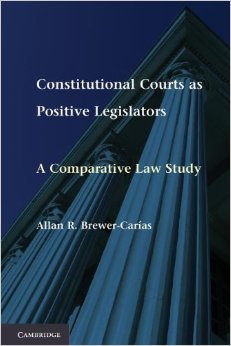(Ebook) Constitutional Courts as Positive Legislators: A Comparative Law Study by Allan R. Brewer-Carias ISBN 9781107613089, 1107613086
In all democratic states, constitutional courts, which are traditionally empowered to invalidate or to annul unconstitutional statutes, have the role of interpreting and applying the Constitution in order to preserve its supremacy and to ensure the prevalence of fundamental rights. In this sense they were traditionally considered "negative legislators," unable to substitute the legislators or to enact legislative provisions that could not be deducted from the Constitution. During the past decade the role of constitutional courts has dramatically changed as their role is no longer limited to declaring the unconstitutionality of statutes or annulling them. Today, constitutional courts condition their decisions with the presumption of constitutionality of statutes, opting to interpret them according to or in harmony with the Constitution in order to preserve them, instead of deciding their annulment or declaring them unconstitutional. More frequently, Constitutional Courts, instead of dealing with existing legislation, assume the role of assistants or auxiliaries to the legislator, creating provisions they deduct from the Constitution when controlling the absence of legislation or legislative omissions. In some cases they act as "positive legislators," issuing temporary or provisional rules to be applied pending the enactment of legislation. This book analyzes this new role of the constitutional courts, conditioned by the principles of progressiveness and of prevalence of human rights, particularly regarding the important rediscovery of the right to equality and non-discrimination.
*Free conversion of into popular formats such as PDF, DOCX, DOC, AZW, EPUB, and MOBI after payment.


